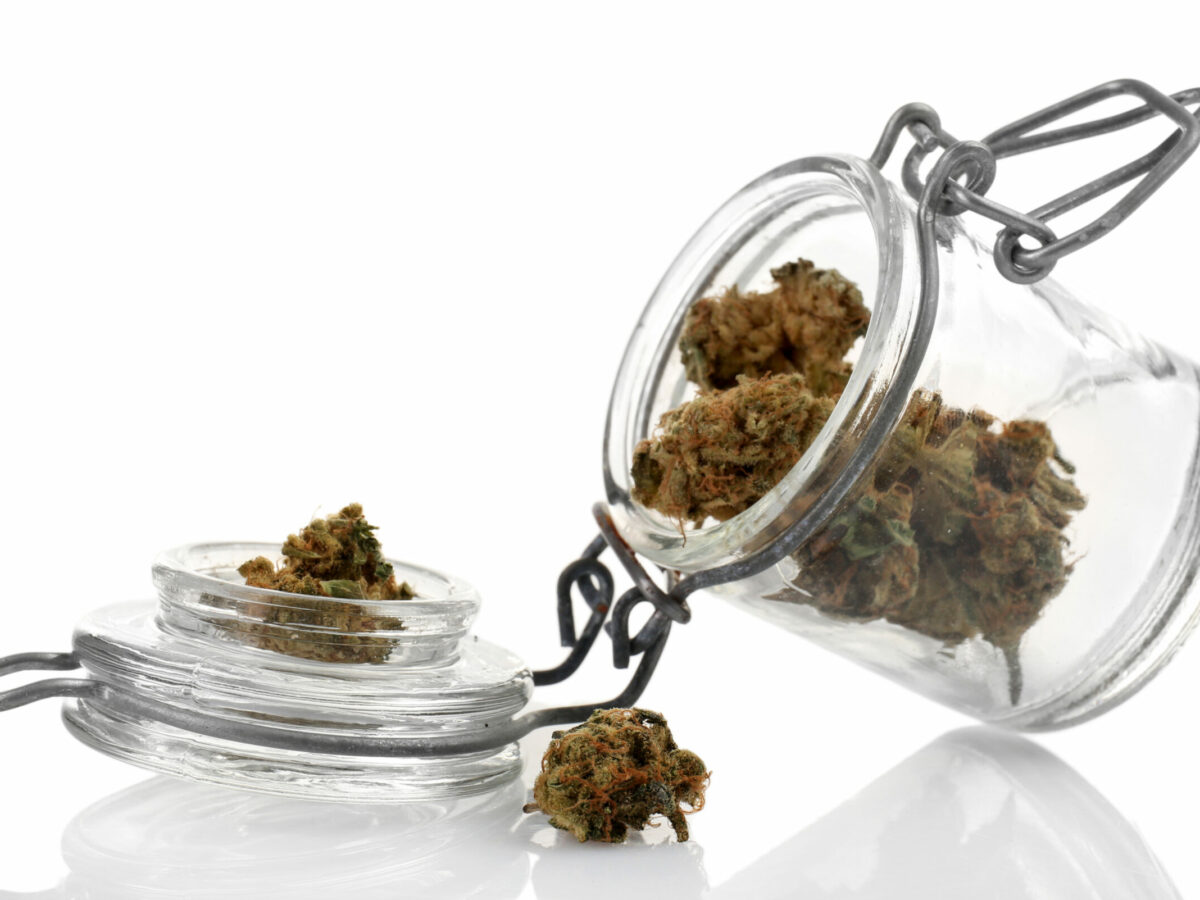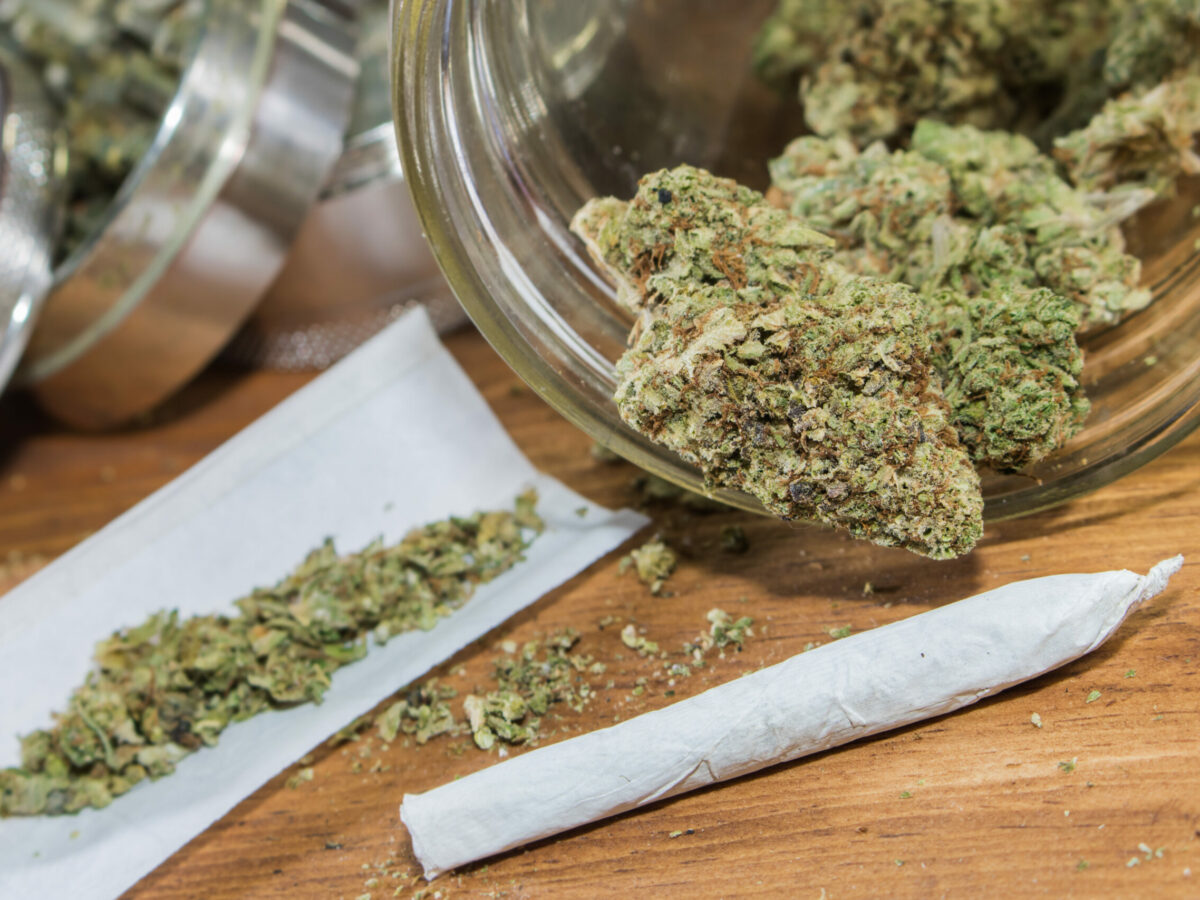A high-profile federal cannabis trafficking trial kicked off on Monday with jury selection, strict rules for spectators and an eye-catching scene outside the Edward A. Garmatz United States Courthouse in downtown Baltimore.
Jonathan William Wall, a 27-year-old Maryland native, is facing at least 10 years in prison for helping to move thousands of pounds of weed across the country in what prosecutors say was a brazen violation of federal drug laws.
Supporters, meanwhile, say the case is emblematic of the widening and increasingly problematic rift between state and federal cannabis policies and the ongoing incarceration of people for non-violent cannabis crimes. As of today, 18 states and the District of Columbia have legalized adult-use cannabis and several other states could soon join them.
Outside the federal courthouse on Lombard Street, legalization advocates hoisted signs decrying the criminalization of cannabis as states and private companies are now raking in billions of dollars from the growing legal weed industry.
A roving billboard truck played video clips of President Joe Biden’s and Vice President Kamala Harris’ so-far unfulfilled campaign promises to end cannabis prohibition while blaring an ice cream truck jingle that was audible through the glass windows on the 7th floor of the courthouse.
“Jonathan’s being very brave and courageous to take this to trial,” said Stacey Theis, a board member with Freedom Grow, a California nonprofit that advocates for people imprisoned on cannabis charges. “That’s why I showed up for him.”
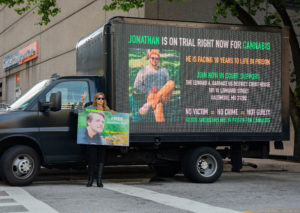
Advocates from local advocacy group DC Marijuana Justice handed out flyers to jurors reminding them of their right to vote “not guilty.” The group, led by prominent weed activist Adam Eidinger, hopes Wall’s case can be dismissed by jury nullification –– when jurors vote “not guilty” despite a defendant having clearly broken the law. Jury nullification often occurs when a jury believes the law itself is unjust.
Inside, the court imposed unusually strict rules for spectators, including media, via an order from U.S. District Judge Stephanie Gallagher that barred anyone from entering the courthouse with laptops, tablets, cameras or other digital devices (even if turned off). It also required anyone going into the courtroom to check mobile phones into a locker.
An administrative judge spent the first hour of the trial going over procedural rules and the context for why Wall has declined a plea deal from federal prosecutors. Wall requested, but was denied an opportunity to explain aloud why he rejected the deal.
Gallagher laid out the jury selection process on Monday, which included questions on whether jurors had used weed in the past, how they felt about drug legalization and whether ongoing federal drug penalties are “unduly harsh.”
Speaking outside the courthouse, family members wondered whether the broadness of those questions would skew the jury selection in favor of people with prohibitionist stances.
“This is stacking the deck,” said Wall’s father, Jonathan Wall Sr..
By the end of the afternoon, however, the court had selected its panel. The trial is expected to wrap up in about one week, Gallagher said.
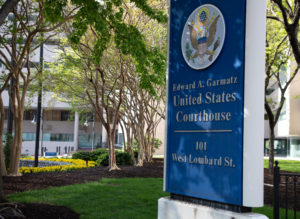
Wall was indicted by a grand jury in October 2019 for allegedly moving more than 1,000 kilograms (or upwards of 2,200 pounds) of weed from California to Maryland over multiple years. He moved out to California in 2015 with hopes of joining the cannabis economy, but the feds allege that between 2016 and 2019 he became the mastermind of a cross-continental cannabis trafficking scheme.
Wall initially fled the country to Central America but later turned himself in. His family says he was moved across the country to at least five detention centers before being detained forthe last two years in the Chesapeake Detention Center, a maximum security prison in downtown Baltimore.
That prison was sued last year for failing to protect detainees from the coronavirus pandemic and for keeping them confined to their cells for more than 22 hours each day, sometimes without access to water. The ensuing settlement forced prison officials to implement COVID-19 safety measures and to ease up on lockdown protocols. (Wall was not among the plaintiffs in the lawsuit.).
Wall’s case has caught the attention of several national media outlets over the last two years and generated some buzz with a pointed ad in The Washington Post in 2021. His supporters have highlighted the ongoing wave of legalization sweeping states across the country and federal debates on relaxing penalties for drug offenders. Last week, President Biden used his clemency powers for the first time by commuting the sentences of 75 people with nonviolent federal drug convictions on their records.
Wall’s attorney, Jason Flores-Williams, had been hoping to point to those ironies as context in the case. He twice attempted — unsuccessfully — to have the case dismissed on constitutional grounds “due to disparate and arbitrary enforcement” of federal drug laws. But the court has sided with prosecutors leading up to the trial and last week Gallagher granted a motion by federal prosecutors to preclude any talk of legalization during the trial.
“The fact that other jurisdictions have legalized marijuana, decriminalized marijuana, are considering decriminalization of certain quantities of marijuana, or have declined to prosecute individuals for crimes involving marijuana, is not relevant to the issues at this trial,” prosecutors wrote in the motion.
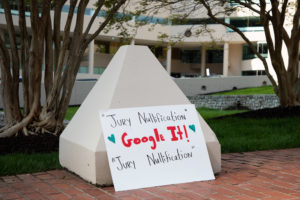
Federal authorities also say Wall is no innocent bystander to the case, having extensively profited from the large quantities of cannabis he hauled across state lines.
“The evidence at trial is also expected to show that the Defendant was paid hundreds of thousands of dollars in cash for the marijuana that he shipped to Maryland for distribution,” they wrote in the same motion. “In fact, the evidence at trial is expected to show that more than $800,000 in cash was seized from one of [Wall’s] co-conspirators and that this money was supposed to be paid to [Wall] for an earlier shipment of marijuana.”
Wall’s mother said she saw her son for the second time in two years Monday morning, though they speak on the phone almost daily. She and Wall’s father said they were taken aback by the strict measures imposed by the court.
“I expected this to be a little hardcore,” she said. “I didn’t expect this to be so harsh.”
(Note: Gaspard Le Dem contributed reporting to this story.)

